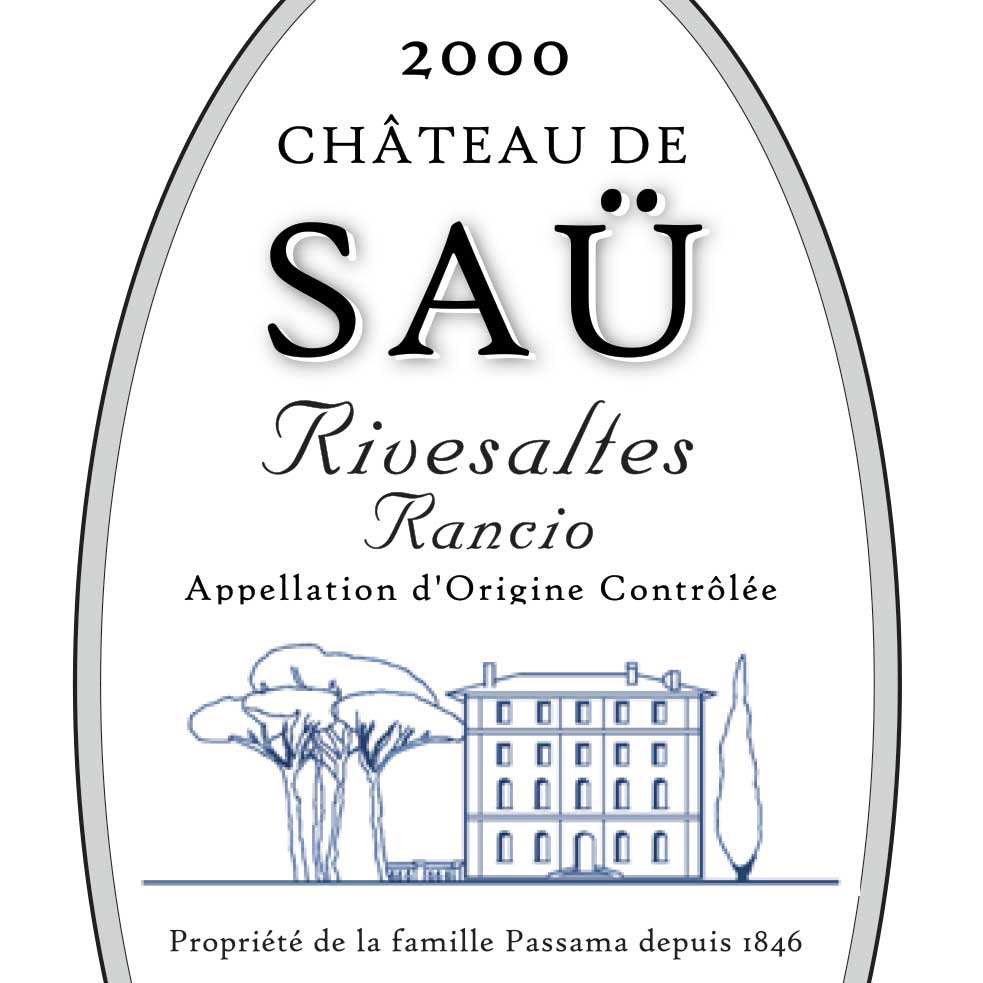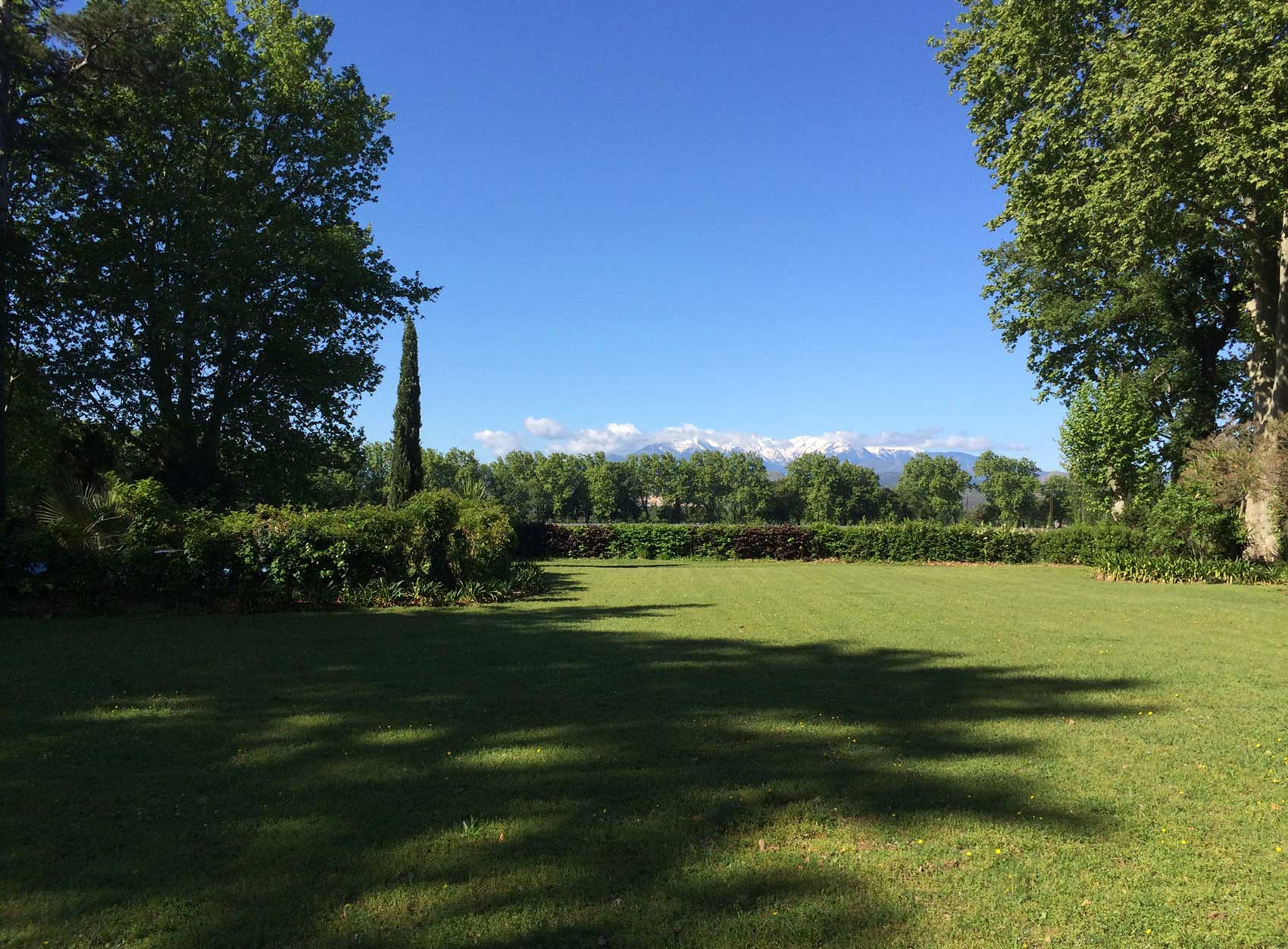Château de Saü Rivesaltes Rancio 2000

|

|
(50-65ºF)
(55-64ºF)
(55-59ºF)
About Domaine de Saü/Château de Saü
 Base map data ©2017 Google, Inst. Geogr. Nacional
Base map data ©2017 Google, Inst. Geogr. NacionalEstablished in 1846 in the heart of the Têt Valley, just outside Thuir, Chateau de Saü has always owned vineyards but didn’t begin bottling its wine until fourth-generation owner Hervé Passama and his wife Béatrice returned to the estate in 1986. Producing a full range of wines under both the Chateau de Saü and Domaine de Saü rubrics—the Passamas completed conversion to organic viticulture in 2006—the estate is most prized for its spicy, alluring Rivesaltes ambré and, more recently, for its Rancio sec, produced during the last years of Hervé’s life. Grapes for both the Rivesaltes and Rancio sec are Grenache gris, harvested by hand from a small 1.9-hectare vineyard of 70-year old goblet vines. Following fermentation and a week-long maceration, elevage is undertaken in a former horse stable situated behind the chateau, a truly special place for the rearing of oxidative wines. The wines are kept in used 225-liter Bordelais fûts, stacked twos and threes, and year-by-year they concentrate and develop the rich texture and notable rancio character that is a hallmark of their elevage. With Hervé’s passing in 2014, Béatrice has retired and the vines have been rented, leaving these wines the last testament of one of the great terroirs for aged, oxidative wines.
Full details
About Rivesaltes AOP
Rivesaltes is one of three great traditional fortified Vin Doux Naturels appellations of France, along with Banyuls and Maury. Its territory covers much of Roussillon and encompasses a panoply of altitudes, aspects, and soils, including limestone, granite, gneiss, argile-calcaire, and all manner of schists.
Not to be confused with Muscat de Rivesaltes, Rivesaltes is produced with a variety of white or red grapes: Grenache blanc, Grenache gris, Macabeu, and Grenache noir are the most common.
Subsequent elevage can either be brief, bottling during the year following harvest to preserve its fresh fruit, or extended, with wines aged a minimum of three years oxidatively—and in some instances, much longer—prior to bottling. Depending on the grapes employed, this oxidative style can be referred to as either Ambré or Tuilé. These are often regarded as the most traditional—and the most exciting—wines of the Rivesaltes appellation. The rarest and most evolved expressions are sometimes labeled Rivesaltes Rancio, in which the wines develop complex, umami-like flavor profiles due to an elevage that might extend decades with little or no temperature control—indoors or outdoors, in glass demijohn and ancient barrels—and minimal ‘topping-up’.
| SKU | Vintage | Region | Origin | Desc | Cepage | % Alc | Size/Pack | Finish | BTL Barcode | Cs Barcode | Cs Wgt |
|---|---|---|---|---|---|---|---|---|---|---|---|
| HZ 6950-00 | 2000 | Roussillon | FR | Oxidative/Oxidized Wine; Fortified | Grenache gris | 20.8% | 500/6 | cork | 3770001227054 | 3770001227108 | 6.60 kg |



